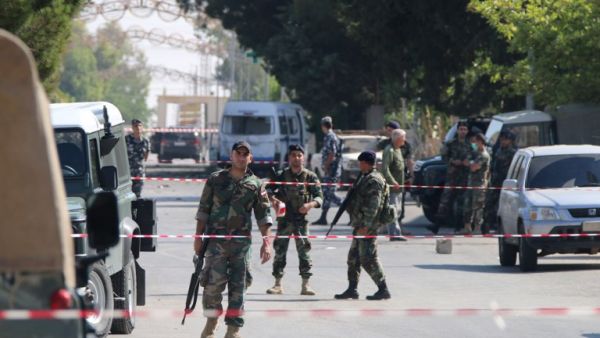Three Lebanese towns Thursday announced a curfew for Syrian refugees citing security concerns following the suicide bombings in a northeastern border village earlier this week.
The Bekaa Valley town of Nabi Sheet said in a statement that Syrians will be prohibited from the town’s streets from 7:30 pm to 6 am until further notice.
It said that the reason behind the nearly 10-hour-long curfew is to preserve the security of the town’s residents as well as the Syrian people residing in it.
It also called on the town’s Syrian refugees to inform the municipality of their place of residence within a ten day period, and report any Syrian nationals that will be visiting Nabi Sheet.
“Anyone who violates these measures will be arrested and held accountable, to the point of being expelled from the town,” the municipality warned.
The south Lebanon towns of Kfour and Sharqieh in the Nabatieh district also enforced their own curfews on Syrian refugees. Kfour made the exception of "sick cases," whereby the Syrian national will be allowed to go to the local clinic or hospital to be treated.
These measures come one day after Baalbek-Hermel Governor Bashir Khodor announced a curfew on Syrian refugees and the banning of all motorbikes in the area. Khodor defended his decision, saying it is aimed at protecting people from reprisals following the bombings, as it was discovered that the suicide attackers were Syrian nationals.
Security forces have increased security measures in the northeast after eight suicide bombings claimed the lives of five people and wounded 30 others in the Al-Qaa village.
The Lebanese Army announced Thursday the arrest of 410 unregistered Syrian nationals after it raided refugee camps across the country. Sixty-seven unregistered motorbikes and cars in their position were also seized, the army added.
Interior Minister Nouhad Machnouk, however, said the suicide bombers came from Raqqa, Daesh’s de facto capital in eastern Syria.
Meanwhile, Lebanese Democratic Party leader MP Talal Arslan called on Lebanese citizens to act as “watchmen” in their residing areas by cooperating with security forces and municipalities in light of the “chaotic spread of Syrian refugees.”








